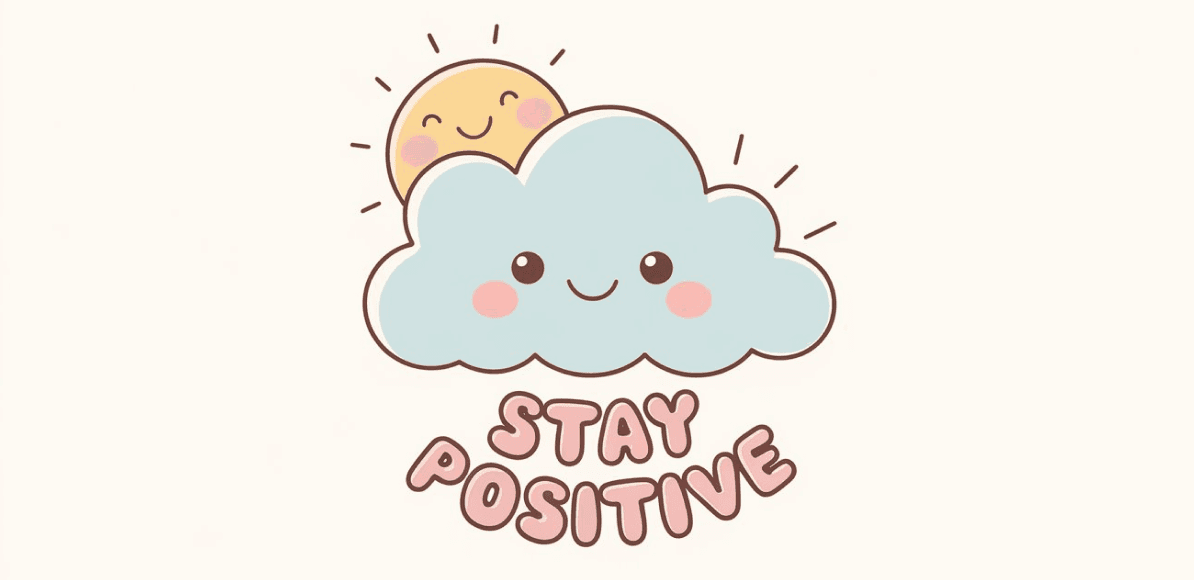8. The Law of Self-sabotage - Change Your Circumstances by Changing Your Attitude

We are all prone to irrational behaviour.
We take it for granted that what we perceive on a daily basis is reality—this reality being more or less the same for everybody. But this is an illusion.
Each of us has a particular way of looking at the world, of interpreting the actions of people around us. This is our attitude, and it determines much of what happens to us in life.
Five negative attitudes that we need to conquer:
😠 Hostile attitude
People with a hostile attitude see the world against them and adopt aggression to defend themselves. They often blame others.
😟 Anxious attitude
People with an anxious attitude fear losing control, leading them to micromanage and dominate others.
😶 Avoidant attitude
People with an avoidant attitude doubt their intelligence or competence, viewing the world through a lens of insecurities. They avoid taking on responsibilities or challenges because they fear failure and want to protect their self-esteem.
😞 Depressive attitude
People with a depressive attitude feel unworthy and unloved, often betraying or criticising others to feed their own depression.
😒 Resentful attitude
People with a resentful attitude feel wronged, perceive oppression everywhere, and view others' success as injustice. They take criticism seriously and use any power they have to seek revenge.

Cultivate a positive attitude by shifting perspectives:
9. The Law of Envy - Beware the Fragile Ego

"Everytime a friend succeeds, I die a little" - Gore Vidal
We are naturally compelled to compare ourselves with others. We measure other people's status, the levels of respect and attention they receive, and noticing any differences between what we have and what they have.
For some of us, this need to compare serves as a spur to excel through our work.
For others, it can turn into deep envy—feelings of inferiority and frustration that lead to covert attacks and sabotage.
Envy occurs most commonly among friends. Sometimes what we experience is the betrayal, the sabotage, the ugly criticisms they throw at us, and we never understand the underlying envy that inspired these actions.

Signs of Envy:
Backbiting
Gossip is a frequent cover for envy, a convenient way to vent it by sharing malicious rumours and stories.
Micro-expressions
Share some good news with suspected enviers—a promotion or a new relationship. You will notice a very quick expression of disappointment.
Equally, share a misfortune and you might catch a quick, uncontrollable glimmer of joy in their reaction.
Poisonous praise
They have praised you, but in a way that makes you uncomfortable.
The push and pull
Enviers often use friendship and intimacy as the best way to wound the people they envy.
The following are five common types of envier, along with how they conceal their envy, and how they attack.
The leveller
They seem to have a keen nose for injustice and unfairness. They associate excellence and success with unfairness, as a way to soothe their insecurities.
Their main goal is to bring everyone down to the same mediocre level they occupy.
Be wary around such people, particularly in the workplace, because they will make you feel guilty for your own impulse to excel. They will criticise you in ugly and hurtful ways. They want to bring you down when they see you rise above them.
The Self-entitled slacker
They feel entitled to have success and the good things in life, but they usually understand that this will require sacrifice and hard work. Be extra careful in the work environment with those who like to maintain their position through charm and being political, rather than by getting things done. They are very prone to envying and hating those who work hard and get results.
The status fiend
As social animals we are very sensitive to our rank and position within any group. For some people, status is more than a way of measuring social position—it is the most important determinant of their self-worth.
They ask about how much money you make, whether you own your home, and all of the other petty things that they can use as points of comparison. If you are around such types, try to downplay or conceal what you have, and talk up their possessions, skills, and status.
The attacher
They are drawn to those who are successful or powerful, not out of admiration but out of secret envy. They will do anything they can to make themselves useful. They lack their own purpose.
The insecure master
For some people, reaching a high position validates their self-opinion and boosts their self-esteem. But there are some who tend to have increasing insecurities. They look at others who might have more talent, even those below them, with an envious eye.
Pay attention to those above you for signs of insecurity and envy. They will inevitably have a track record of firing people for strange reasons. Always play it safe by making them look better, and earning their trust. Couch your brilliant ideas as their ideas. Let them get all the credit for your hard work. Your time to shine will come, but not if you stimulate their insecurities.

Ways to go beyond envy:
Engage in downward comparisons
We normally focus on those who seem to have more than us, but it would be wiser to look at those who have less, not in a superior manner, but in a way that gives us gratitude for the things we possess and we take for granted. Such gratitude is the best antidote to envy.
Admire human greatness
Admiration is the opposite of envy—we acknowledge people's achievements, celebrating them, without having to feel insecure. In recognising the greatness of someone, we are celebrating the highest potential of our species.
Use the overview effect
Place ourselves in a beautiful landscape—mountains, the sea, or a forest—and reflect on the vastness of the universe and the endless span of time before and after us.
10. The Law of Grandiosity - Know Your Limits

Throughout history, we humans have a deep need to think highly of ourselves.
Often a small success will elevate our natural grandiosity to even more dangerous levels, because our self-opinion has been confirmed.
We begin to feel superior to others, downplaying or forgetting the role of luck and the contributions of others. We imagine we have the golden touch and we become grandiose.
However, it is our ability to be realistic and pragmatic that truly makes us powerful. These qualities enabled us to overcome our physical weaknesses in a hostile environment thousands of years ago, helping us collaborate with others, form communities, and create tools essential for survival.
11. The Law of Gender Rigidity - Reconnect to the Masculine or Feminine Within You

We all possess both masculine and feminine qualities—some are genetic, while others stem from the deep influence of the parent of the opposite sex.
However, in our effort to maintain a consistent identity and fulfil societal gender expectations, we often suppress these qualities.
Which leads to the loss of valuable dimensions in our character. This repression affects our relationships with the opposite sex, as we tend to project our own fantasies and hostilities onto them.
Often a small success will elevate our natural grandiosity to even more dangerous levels, because our self-opinion has been confirmed.
Gender Projection Types:
As we explore these different forms of projection, try to identify any tendencies you may have toward them. Also, be mindful of how others may project their own needs and fantasies onto you.
The Devilish Romantic
The woman who is usually drawn to a man who is older, successful, romantic and showers the woman with attention and gifts. She decides to seduce him and become the target of his attention.
This is often the projection of women who had rather intense, even flirtatious relationships with the father and becomes addicted to their attention. She grew used to charming men like him, always trying to get that same attention, but the men she chooses can never meet her expectations, leaving her frustrated.
The Elusive Woman of Perfection
The man who thinks he has found the ideal woman, someone who will fill what's missing in his life, whether that's some wildness, some comfort and compassion.
He doesn't know her well but builds up an ideal image in his mind, imagining all kinds of positive experiences with her. But once they start a relationship, he quickly realises she's not what he imagined, becomes disappointed, and moves on to the next woman to project his fantasy onto, repeating the cycle.
This happens because he didn't get enough attention or love from his mother. He keeps searching for a “perfect” woman, but it's all based on fantasy. These women are often distant or seem exciting but aren't a real match for him.
The Lovable Rebel
The woman who is attracted to men that disdain for authority—often young, not successful, and outside her usual social circle, someone her father or friends wouldn't approve of.
But once they start a relationship, she sees that he's not really rebellious—he's just lazy and controlling. The relationship falls apart, but she still holds onto the fantasy.
This often happens because she had a strict father who was critical and controlling. She grew up wanting to rebel but couldn't, so she projects that rebellious desire onto these men.
The Fallen Woman
The man who is attracted to the opposite of what he used to be: good, obedient, and trustworthy.
She might come from a different culture or social class or be less educated than he is. She seems to need protection, guidance and financial support and he sees himself as the one to rescue and elevate her. However, the closer he gets to her, the less she fits his expectations.
Men like this often had strong mother figures in their childhood and are unconsciously drawn to women who are imperfect, bad, of dubious character. They secretly crave what is the opposite of themselves.
The Superior Man
The woman who is drawn to the superior man, someone seems brilliant, skilled, strong, and stable—radiating confidence and power. He could be a high-powered businessman or a professor.
This type of projection is very common and is due to feelings of inferiority, criticism from her father or others. Being with him gives her an indirect feeling of confidence and superiority.
These men, in turn, are often attracted to women who admire them, frequently younger and more easily controlled. This would be the classic professor seducing the student.
Use the overview effect
Place ourselves in a beautiful landscape—mountains, the sea, or a forest—and reflect on the vastness of the universe and the endless span of time before and after us.